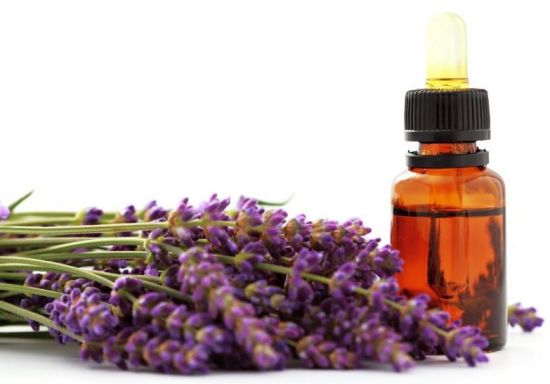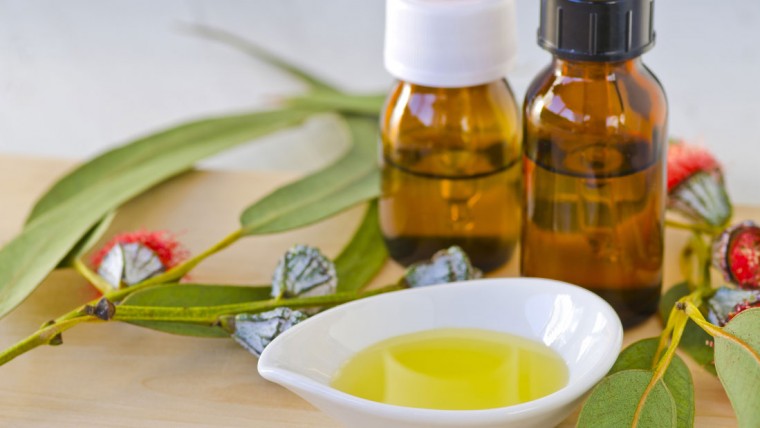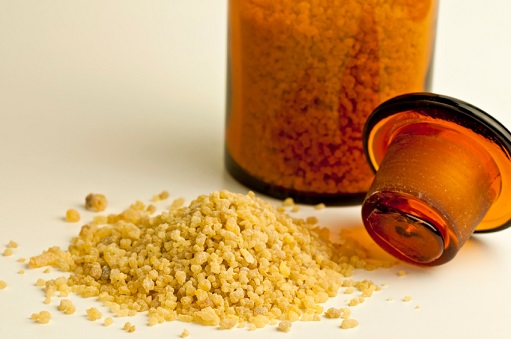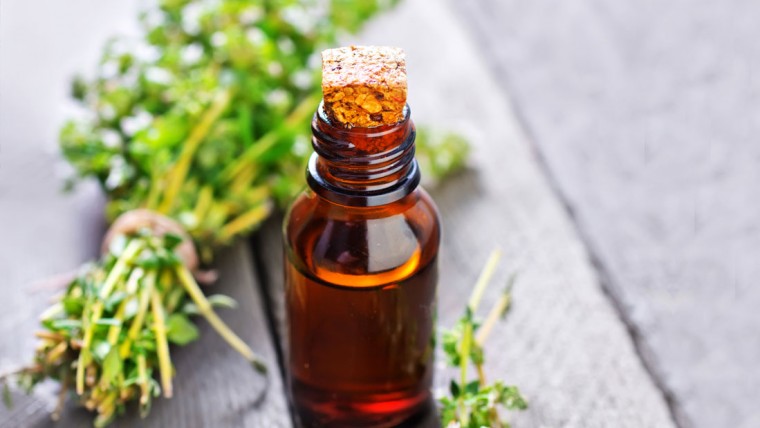Asthma is a disease that inflames the walls of passageways that supply air to the lungs. Inflamed airways are sensitive and complicate breathing. Common asthma symptoms include breathing problems, wheezing, coughing, and tightness in the chest. Asthma has no cure. Doctors identify thefactors that trigger asthmatic attacks or symptoms in each patient and help them avoid those factors. Doctors also prescribe medications including inhalers to manage the disease. Inhalers contain anticholinergics and beta agonists, which treat asthmatic attacks effectively. This article outlines some essential oils for asthma that are effective in preventing asthma attacks.
9 Essential Oils to Crack Asthma
1. Peppermint
 Peppermint essential oil has decongestant and antihistamine properties that relieve asthma attacks. Exposure to allergens such as dust mites and pollen trigger your body to release histamines, which in turn trigger asthma attacks. Peppermint inhibits the release of histamine in your body.
Peppermint essential oil has decongestant and antihistamine properties that relieve asthma attacks. Exposure to allergens such as dust mites and pollen trigger your body to release histamines, which in turn trigger asthma attacks. Peppermint inhibits the release of histamine in your body.
How to apply: Combine 2 drops of peppermint essential oil with one drop of lemon, 8 drops of lavender, and 20 drops of carrier oil. You can use carrier oils such as sweet almond, olive or jojoba. Rub your chest using this mixture twice in a day to prevent asthma attacks.
2. Lavender
 Lavender is one of the essential oils that have sedative and anti-inflammatory characteristics that are effective in managing asthma.
Lavender is one of the essential oils that have sedative and anti-inflammatory characteristics that are effective in managing asthma.
How to apply:
- Its use and application can be achieved by inhaling a combination of lavender and eucalyptus or peppermint, which can relieve mild asthma attacks.
- Another way of using lavender for asthma attacks is adding several drops of the oil into a bowl with hot water. Cover your head with a towel and inhale the steam from the bowl, which helps to clear your airways and cleanses your skin.
3. Roman Chamomile and Bergamot
 Theseessential oils for asthma are antispasmodics. They relieve asthma symptoms by relieving muscle contractions that narrow bronchial passages. Roman chamomile and bergamot essential oils have sedative properties that relax the body. This relaxation is necessary because tension accompanies asthma attacks.
Theseessential oils for asthma are antispasmodics. They relieve asthma symptoms by relieving muscle contractions that narrow bronchial passages. Roman chamomile and bergamot essential oils have sedative properties that relax the body. This relaxation is necessary because tension accompanies asthma attacks.
How to apply: Mix a few drops of bergamot and roman chamomile oils and use the mixture to rub your chest and back. The mixture relieves mild and severe asthma attacks.
4. Tea Tree Oil
 Tea tree oil is an effective expectorant that removes mucous from your system. Mucous causes coughing and wheezing in asthma patients. The essential oil is also effective in relieving respiratory conditions such as coughing and bronchitis.
Tea tree oil is an effective expectorant that removes mucous from your system. Mucous causes coughing and wheezing in asthma patients. The essential oil is also effective in relieving respiratory conditions such as coughing and bronchitis.
How to apply: Using tea tree oil to treat asthma is simple. Place a clean face towel in warm water, wring, and add a few drops of tea tree oil on the damp, warm towel. Breathe through the warm towel until cool. Repeat the process until you feel relieved.
5. Eucalyptus
 Eucalyptus oil has a strong scent that helps in decongesting airways. The oil contains eucalyptol, which breaks any phlegm and mucous in your system and allows you to breath easily.
Eucalyptus oil has a strong scent that helps in decongesting airways. The oil contains eucalyptol, which breaks any phlegm and mucous in your system and allows you to breath easily.
How to apply: Adds a few drops of the oil to hot water, then breathe the steam from this combination to expand your congested airways and relax lung spasms.
6. Frankincense
 Frankincense oil has expectorant and anti-inflammatory properties. The oil helps in decongesting lungs and nasal passages during an asthma attack. This essential oil is also useful in relieving anxiety, confusion, and stress.
Frankincense oil has expectorant and anti-inflammatory properties. The oil helps in decongesting lungs and nasal passages during an asthma attack. This essential oil is also useful in relieving anxiety, confusion, and stress.
How to apply: One way of using frankincense oil is wafting its scent into the air using a reed diffuser. Alternatively, you can use the oil to rub your chest.
7. Oregano
 Oregano oil has antibacterial and anti-fungal properties. It relieves breathing difficulties in asthmatic patients instantly when inhaled. Oregano oil is also effective in preventing respiratory tract infections.
Oregano oil has antibacterial and anti-fungal properties. It relieves breathing difficulties in asthmatic patients instantly when inhaled. Oregano oil is also effective in preventing respiratory tract infections.
How to apply: Combine 25 drops of the oil with 5oz of water in an atomizer bottle to make a mist and then inhale the vapor. Another way of using this essential oil is adding its drops to an essential oil diffuser with water.
8. Clove
 Clove oil is one of the most effective essential oils for asthma. Clove oil has many properties that relieve asthma symptoms, which include antispasmodic, analgesic, and anti-inflammatory properties. The oil helps in expanding constricted respiratory airways and relieving breathing difficulties in asthma patients.
Clove oil is one of the most effective essential oils for asthma. Clove oil has many properties that relieve asthma symptoms, which include antispasmodic, analgesic, and anti-inflammatory properties. The oil helps in expanding constricted respiratory airways and relieving breathing difficulties in asthma patients.
How to apply: You can use a vaporizer or oil diffuser to diffuse clove oil in the air for about 20 minutes. Clove oil is also used as a chest rub. Rubbing clove oil directly to your skin may cause irritation. Instead, dilute the oil with water or almond oil before applying it on your skin.
9. Thyme Oil
 Thyme essential oil is beneficial in boosting the immune system and strengthening the respiratory system with its antiseptic, antibacterial, and expectorant properties. In fact, it is effective in eliminating all asthmatic symptoms including coughing and colds.
Thyme essential oil is beneficial in boosting the immune system and strengthening the respiratory system with its antiseptic, antibacterial, and expectorant properties. In fact, it is effective in eliminating all asthmatic symptoms including coughing and colds.
How to apply: One way of using thyme oil is combining it with bergamot oil and using the mixture as a chest rub. An alternative way is to add thyme oil in hot water and breathe through the steam. This steam therapy eliminates breathing difficulties and reduces wheezing.
Tips for Safe Using
Using essential oils for asthma requires caution and safety. Strong odors trigger asthma symptoms and attacks. Hence, you must ensure that the fragrance of the essential oil you intend to use does not trigger your asthma symptoms. It is advisable to use therapeutic grade oils because they are safe when used in and on your body.
Another safety precaution when using essential oils is to start with a drop on your skin. Wait for a few minutes and check how your body reacts to the essential oil. You may avoid using the oil if you are sensitive to the oil or dilute it in carrier oil. Use essential oils in small amounts and seek advice from experts, books and other guideline on when and how an essential oil should be used.
Consult your doctor before using any essential oil as a new treatment for asthma.
